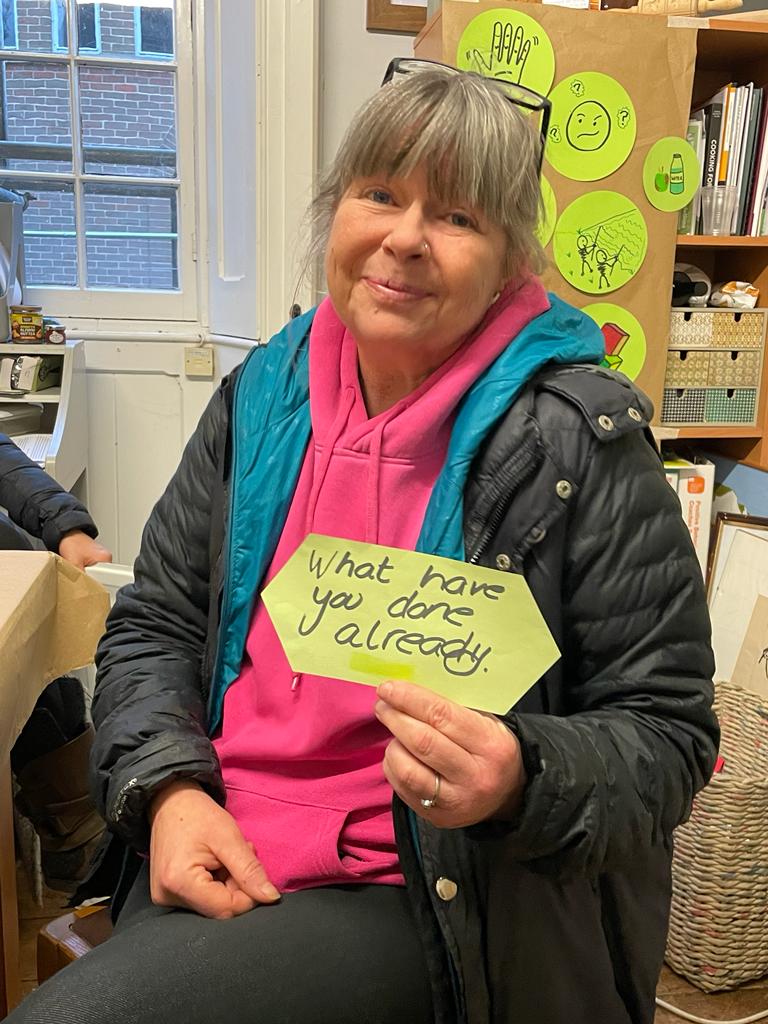Each quarter a member of the Your Own Place team is going to share an insight into their role at Your Own Place and what they have recently been up to as part of it. This quarter Facilitator and Office Manager, Bianca, reaches her fourth year at Your Own Place and has taken time to reflect on where her passions lie within our work and why working restoratively is so important.

As I reach almost four years at Your Own Place, I’ve been reflecting on what drew me here originally and what keeps me passionate about this work every day. For me, it all comes back to working restoratively.
At Your Own Place, we talk a lot about working restoratively. It might sound like jargon (and honestly, I had to deep dive what it actually meant before I applied for the job; I’d never heard it before, though I was practicing it), but at its heart, it’s really simple: it’s about how we show up with people. That’s something I’ve always been passionate about: how we show up, how we treat people, and how we support them to be kind and compassionate to themselves and to believe in what they can do.
Restorative practice means listening before speaking, asking before assuming, and remembering that everyone has strengths, even if life has thrown them more than their fair share of curveballs. Sometimes it’s those curveballs that have strengthened their skills and knowledge, though that may be hard to see at the time. It’s about walking alongside people to find solutions, discover what works for them, and understand how they see the world. It’s about shaping the world around their strengths, rather than thinking they were made wrong or broken and need to be fixed to fit in.
So why would that lead me to a job that’s about preventing homelessness? Because that approach has everything to do with it

Preventing homelessness isn’t only about keeping a roof over someone’s head. It’s about supporting them to build the skills and confidence to keep it there themselves, by finding out what works for them, in their own way. Because it’s not just housing, it’s everything that goes with it: money, work, relationships, resilience, self-belief, and confidence.

Applying a restorative practice allows people to shape solutions based on their own preferences and strengths, rather than what others expect of them. When changes are coming from the individual themselves, they are far more likely to stick to them and keep them going. That can make the difference from someone simply being housed to them building the skills, confidence, resilience, and trust in themselves to maintain their home, work, and relationships in the long term. All of which are core in the prevention of homelessness.
For me, this feels especially true in our work with care-experienced young people, unaccompanied asylum-seeking children, and refugees. Many have had to navigate trauma and instability before even having a fair shot at adulthood, and applying the restorative practice means recognising their resilience, giving space for their stories, and holding onto the belief that they can and will thrive while still in the earlier stages of their housing journeys.
The most rewarding moments are being there to witness someone’s face light up as they reach a solution for themselves, one they’ve determined by understanding their own needs and what it takes to make things work for them. Watching a young person go from feeling uncertain to proudly taking their next step forward. Seeing these things happen brings me joy in my work. I know that feeling myself: I remember a period in my life when I shifted from feeling like I was “waiting to be rescued” or “having to fit the given mould” to realising I can do this, and I can do it my way.
Of course, it’s not always easy. It means biting your tongue when you want to jump in with the “answer.” It means holding space when emotions run high. It means believing in people even when they’re struggling to believe in themselves. That takes patience, practice, and probably an extra coffee or two.
At the end though, you get to witness someone step into their own power, see their confidence grow, and watch them take a path that keeps them in a home, in a job, or in a community that values them. What’s not to love about that?
At Your Own Place, we know that preventing homelessness isn’t about quick fixes. It’s about people. And people, whether care-experienced, newly arrived in the UK, or simply finding their way, thrive when they’re met with respect, curiosity, and kindness.
To read more about #TalkMoneyWeek, visit the website by clicking here


